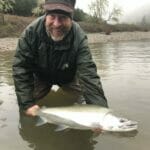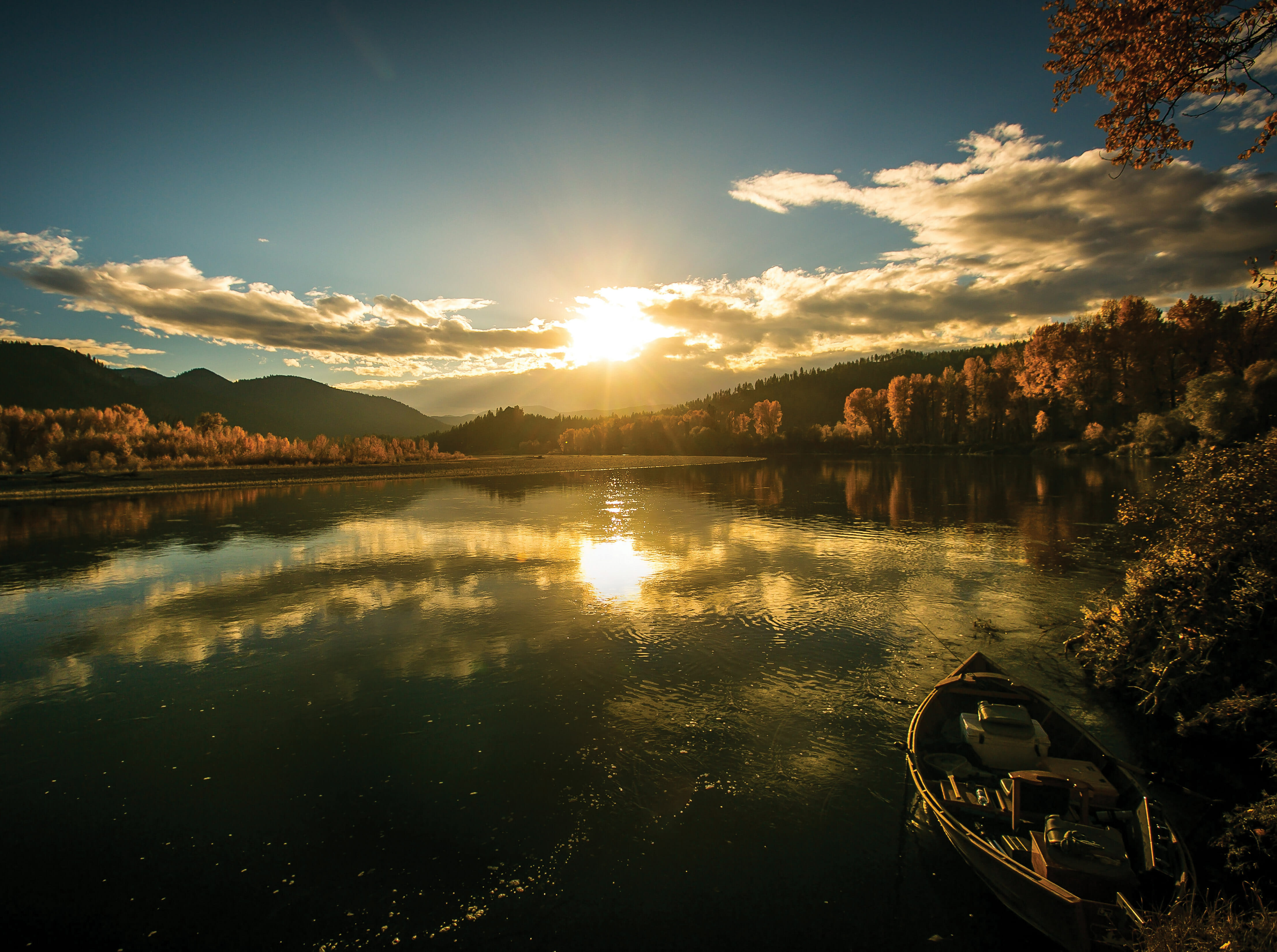Editor’s note: TROUT Magazine Online will publish frequent essays on “American Places,” lands and waters that make the nation unique. These essays will be crafted by Trout Unlimited staffers, contributing writers and volunteers. These places are near and dear to many and worthy of sharing in hopes of creating more advocates for the treasures so many Americans cherish.
Owed to a Place
You will know you’ve found a special place when you name it. Perhaps this act of nomenclature will be conscious, perhaps not. One day you’ll be calling your place the Upper Bench or the House Rock Hole, and you will have a special place. Of course, that setting—particularly if it is public land—will be named something else by someone else, but that is no matter. In your mind, heart and blood, this is yours and it is special. It’s a treasure. And America has its share of treasures.
On this little ranch we have Lefty’s Corner (so named for a good horse’s final resting place as he became eagle feed), the Contemplation Station (a bench with a good view for a cigar smoker), the Raspberry Patch (obvious) and the Grasshopper Slick (a portion of our trout stream where we toss hapless grasshoppers to our pet brown trout). To name a few.
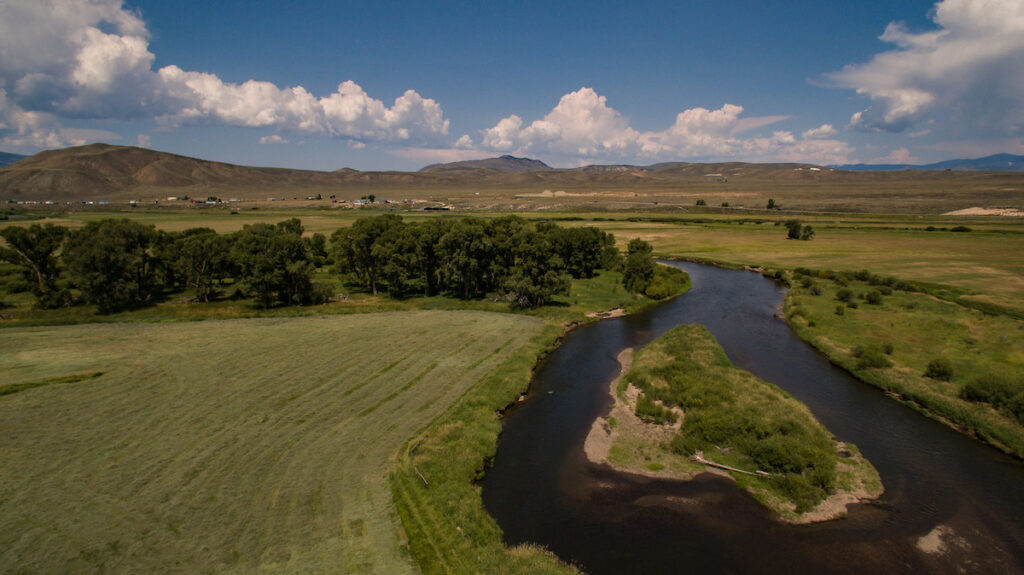
When my grandmother was in her late 50s, she purchased a small ranch on the flanks of a mountain named Waugh in southcentral Colorado using with the insurance money from her late husband’s death. She ran cows on her ground, but she was a naturalist true and blue, and she knew the names of every wildflower and every migratory or resident bird. This love of the land effervesced off of her, but I was probably the only one of the eight grandchildren who embraced this affliction and my hunter/angler-self thanks her for my naturalist core to this day. She, born in 1908 and a Latin major—of all things—in college, also infused in me a love of language and history.
Her ranch had a vernacular of its own that it spoke to a boy with a lust for bug- and trout-catching and deer-killing, and it also had a history, deep and true and exciting. Places have stories. Stories have places. In the early 1900s, a big grizzly bear named Old Mose was brought to ground in a hail of bullets only one mountain north of her ranch. I often walked that ground and thought of a scarred old grizzly whose parents had probably supped on bison where the pines met the prairies. His own appetite for beefsteak and lamb chop was his undoing. Much later in life, I wrote a book about bears, tapping into that same lore I’d felt on that ranch.
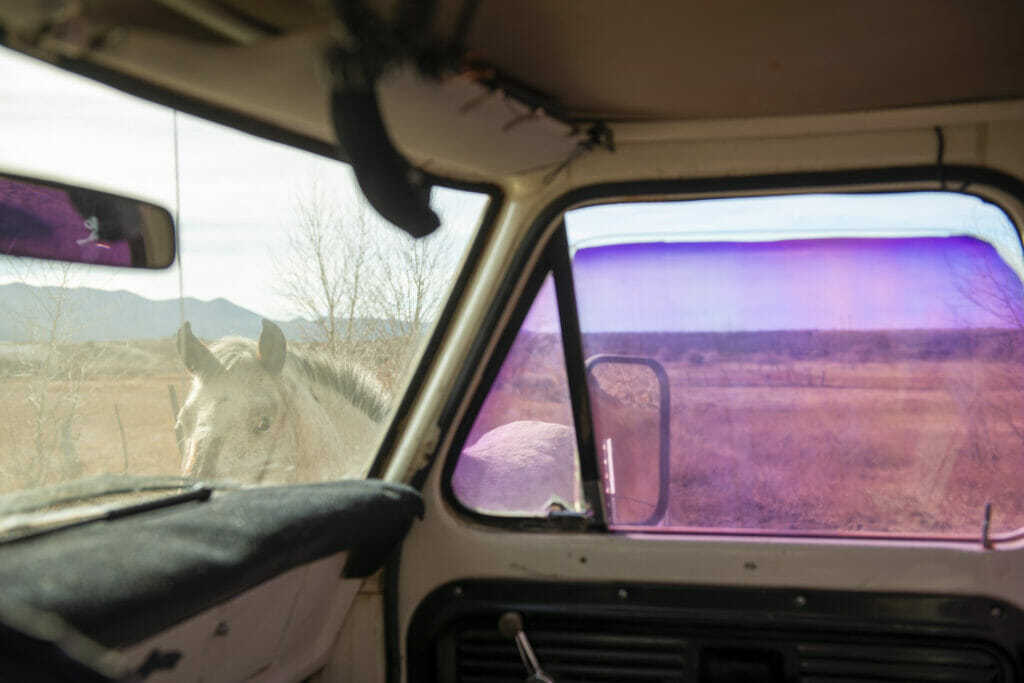
We named the places on the ranch. The Big Spring, the Lumber Camp (where the skeleton of an old White truck that had been used to power a sawmill lay rusting away), the Southeast Meadow, Old Mose Ridge and the Nighthawk Log. This latter we would climb to on the ridge behind of the house after our evening meal and we would watch the nighthawks flit and dive in the cooling sky, the air buzzing with the sound of wind over feather. We’d pull sweaters on against the summer evening and be fully present, fully in the now.
Along about the late 1970s, our country was struggling. Inflation was high and one Middle East fossil fuel crisis after another had all of us worried about where we’d get the goods to power our vehicles or heat our homes. A few scientists convinced a few politicials that uranium was the answer and it just so happened that there was an off chance that this chemical element could be found on Grandma’s ranch. She owned the land—the Doug fir and the ponderosa pines and the aspens—but she had no claim to the soil, the mineral rights. So, one fine summer day, claims were staked out all over her ground by a big energy company and another fine summer day bulldozers and other heavy equipment came up the road without permission because they didn’t need it, promising destruction to everything she loved and had named. The Nighthawk Log got shoved out of the way and the two-track it sat beside became a gravel road one could drive a sedan—or a tractor trailer—over. She sold out, found another place to live in mountains elsewhere and made sure she had the mineral rights on that one.
I found another place. Places. I found them in Montana and Idaho and Utah and Wyoming and Colorado and Arizona and New Mexico and Alaska. Some of them I named: the Black Hole (a thick spruce forest where we consistently killed bull elk), Ambush (where a seven point bull elk almost ran over me before I could get an arrow nocked), Buddy’s Run (home to eighteen inch browns that always took a well-tossed hopper), Cinco’s Meadow (where another horse, this one named Cinco, met a tragic end in a freak accident on a backcountry fishing trip that still makes me shudder).
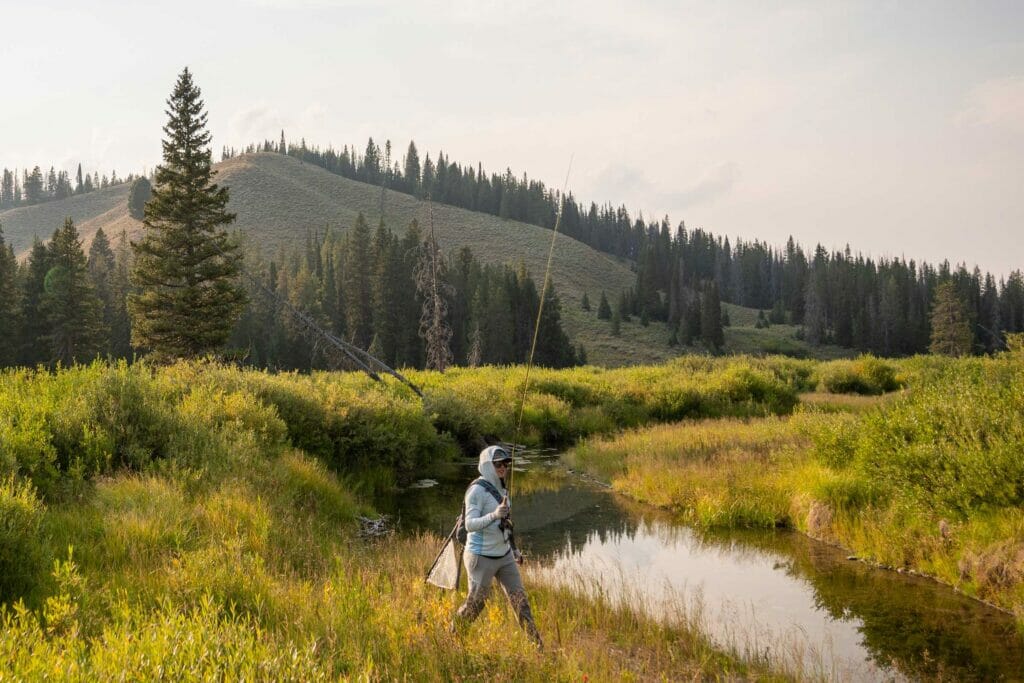
It’s important to me to find my place, to have that connection, even if I’m only visiting this hallowed public ground one time, never to return. But this rarely happens. I file them away and reminisce.
I’ll walk around a bend of a stream and see the light angling and the bugs rising and the trout finning and sipping. Maybe I’ll stand there, agog. Perhaps I’ll have the presence of mind to lay out a long cast. But when I reel up and pin the fly to cork and stand and stretch and sling my pack on shoulder, I know I’ll be back, even if only in my mind. This is my place, where my soul is balanced and light and at peace.


